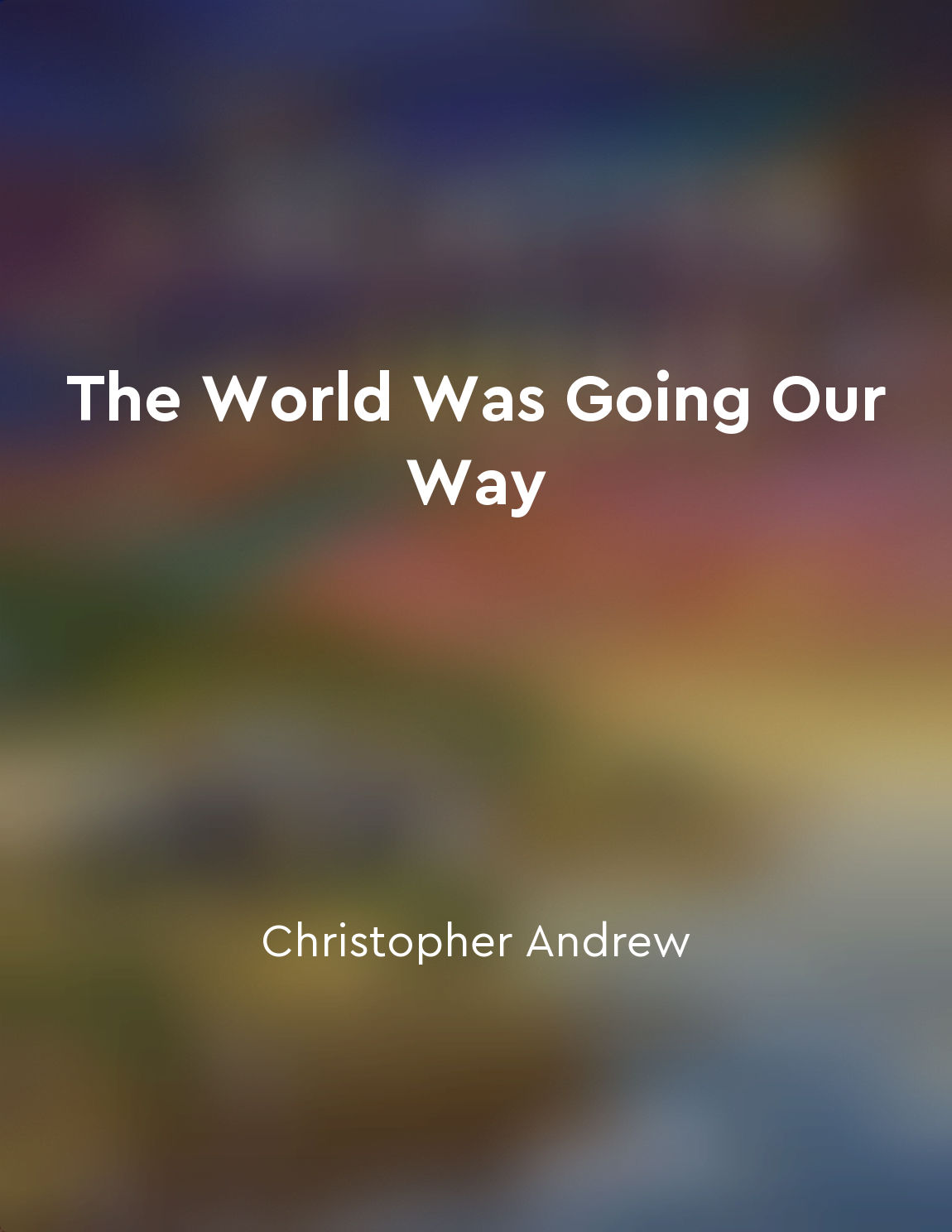The Cold War shaped geopolitics for decades from "summary" of The Story of Mankind (Updated Edition) (Liveright Classics) by Hendrik Willem van Loon,John Merriman
The Cold War, a period of tension between the United States and the Soviet Union following World War II, had a lasting impact on geopolitics around the world. This ideological struggle between two superpowers shaped the global landscape for decades to come. With both countries vying for influence and power, the Cold War led to the division of Europe into Western and Eastern blocs. The United States and its allies formed NATO to counter the Soviet-led Warsaw Pact, leading to a geopolitical divide that defined much of the post-war era. The Cold War also had significant implications for countries in the developing world, as the United States and the Soviet Union competed for influence through proxy wars and allia...Similar Posts

Cultural diversity enriches global society
The mingling and exchange of different cultures throughout history have been a rich source of innovation and progress for globa...

Cold War, nuclear arms race, space race
The rivalry between the United States and the Soviet Union during the Cold War era was marked by intense competition in various...
NATO formed for collective defense
The North Atlantic Treaty Organization, or NATO, was established in 1949 with the primary goal of providing collective defense ...
Proxy wars in Korea and Vietnam prolonged conflict
The United States and the Soviet Union avoided direct conflict during the Cold War, but they did engage in proxy wars in Korea ...
